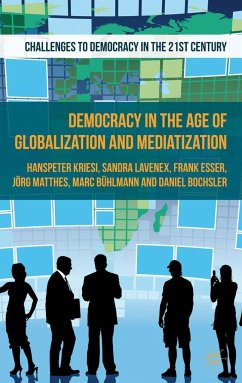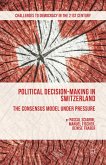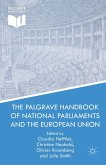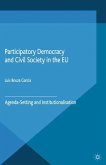This book provides comprehensive coverage of the models of contemporary democracy; its social, cultural, economic and political prerequisites; its empirically existing varieties and its two major challenges - globalization and mediatization. The book also covers the global spread of democracy and its spread into supranational democracies.
Rethinking democracy is imperative in the new framework of loosely bounded and competing territories, growingly culturally heterogeneous populations, mediatised and privatised context of political persuasion, and multiple and nationally-displaced decision-making processes. This book does so with great insight and comprehensiveness.
-Professor Stefano Bartolini, Director of the Robert Schumann Center for Advanced Studies, European University Institute, Florence Italy.
"Democracy in the Age of Globalization and Meditization" takes a fresh look on democracy. Combining insights from Comparative Politics, International Relations and Political Theory, this book convincingly identifies the major challenges and offers important insights for responding to them. It is a must for those interested in the future of democracy.
- Michael Zürn, Director at WZB (Social Science Research Center Berlin) and Professor of International Relations, Free University Berlin, Germany.
-Professor Stefano Bartolini, Director of the Robert Schumann Center for Advanced Studies, European University Institute, Florence Italy.
"Democracy in the Age of Globalization and Meditization" takes a fresh look on democracy. Combining insights from Comparative Politics, International Relations and Political Theory, this book convincingly identifies the major challenges and offers important insights for responding to them. It is a must for those interested in the future of democracy.
- Michael Zürn, Director at WZB (Social Science Research Center Berlin) and Professor of International Relations, Free University Berlin, Germany.








